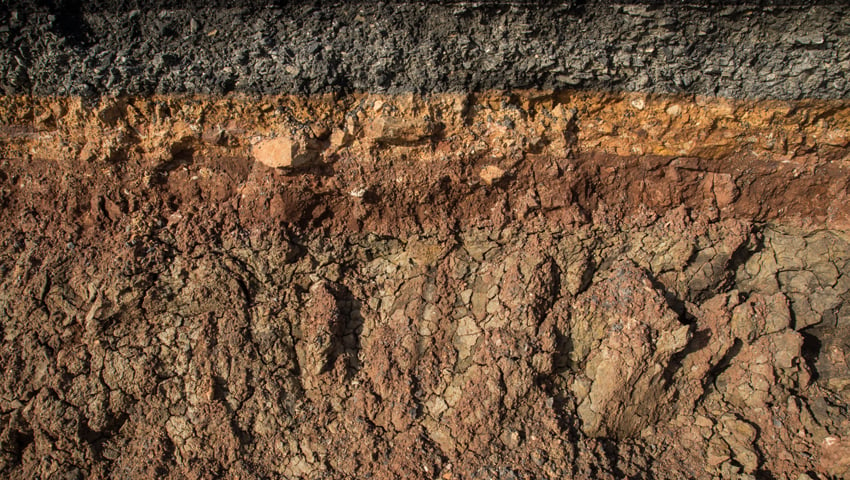THE James Hutton Institute has awarded Duncan Macalister of Glenbarr farm in Kintyre the “Best Soil in Show” trophy during the Royal Highland Show in Edinburgh last month.
Soil scientists from The James Hutton Institute analysed soil samples submitted by land managers across the country in the competition. They tested it against compositional, structural, and chemical criteria to grade and benchmark the soil.
Macalister explained that he had begun soil sampling at home when he realised the neighbouring farms were growing larger quantities of higher quality barley than he was able to. After much research, he discovered his soil had a magnesium calcium imbalance, which he addressed by using lime local to Kintyre – which is 98% calcium.
Macalister said: “I was mainly blaming myself for the claggy soil, sure it was something I was doing wrong. However now that I’ve started using local lime, I’ve gone from growing 20 acres of barley for personal use to 130 acres of barley – and over the last few years I’ve been able to sell the surplus.
“I’ve never won a trophy in my life, so I’m very grateful to The James Hutton Institute for recognising how much my soil has improved – it’s validation for all of the work I have done. Soil is the engine room to the farm; you’ve simply got to get it right.”
Professor Colin Campbell, Chief Executive of The James Hutton Institute, said, “Soil is the foundation to much our lives. It plays a vital role in our food, our homes, our biodiversity, the water we drink and so much more. I’d like to extend my congratulations to Duncan and thank all of the land managers who submitted their samples.”
UK Government Minister for Scotland John Lamont presented Duncan with the accolade during the 181st Royal Highland show in Edinburgh last month.
Mr. Lamont said “I was delighted to present the prestigious Best in Show award for soil to Duncan at the recent Royal Highland Show. Food security has been thrown into sharp focus by Vladimir Putin’s illegal war in Ukraine. It means domestic production of foodstuffs is critical and with the sure hands of science from the likes of The James Hutton Institute guiding us, and farmers of the quality of Mr Macalister as guardians of the land – and especially the soil – we can face the future with confidence.”
The James Hutton Institute has over 90 years’ experience in soil and crop research and hosts Scotland’s National Soils Archive, which is a historic reference of soils in the past and is used to test new analyses and monitor changes in soil over time.
